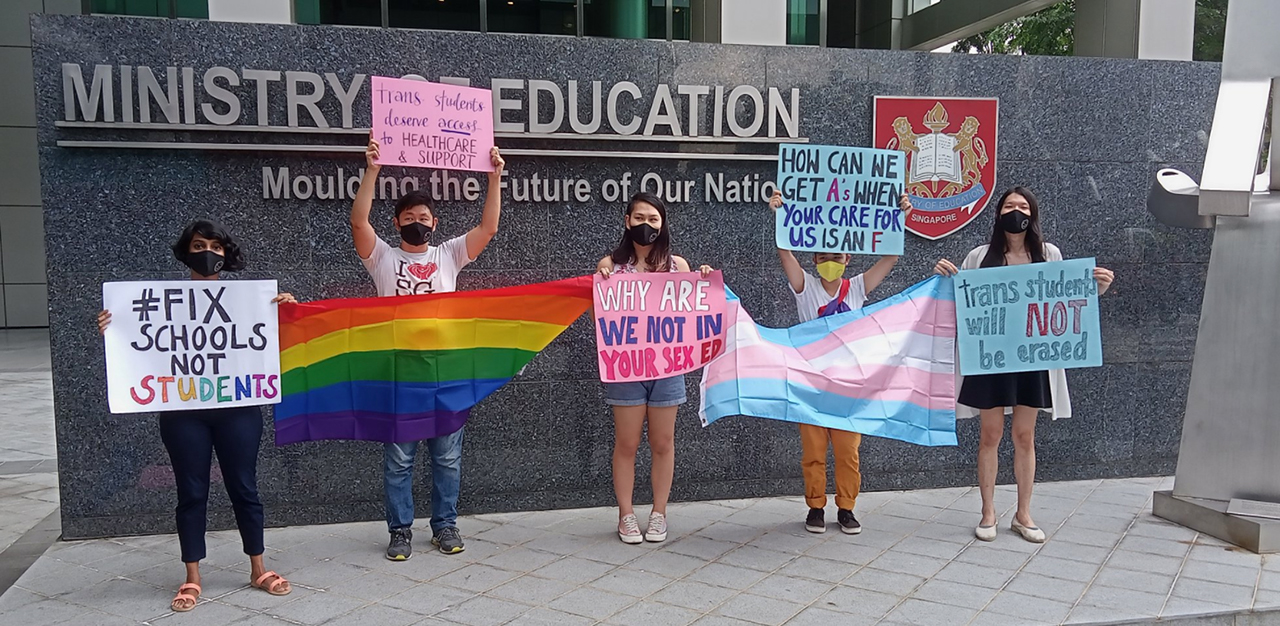I still have distinct memories burned in my mind, memories of late-night screaming matches with my father on whether billionaires should exist or not; dinner table discussions on whether India is right for occupying Kashmir, which quickly turned ugly and personal.
There are times when I don’t even try to argue with my parents. On the contrary, I find myself nipping any burgeoning quarrel in the bud.
These memories seem similar to my classmates complaining about me being a ‘smart Alec’, or my teachers asking me ‘why don’t you give the others a chance [to speak]?’ It has also become all too common to hear admonishments like ‘Why are you so headstrong?’ or ‘Take a chill pill.’
Granted, people are becoming more accepting of those who speak their mind openly and loudly, but why are they still so hostile to those who are labelled ‘argumentative’, or to the thought of arguing, at all?
On being and becoming argumentative
I don’t know how I became this argumentative. It wasn’t a value that was instilled in me by my parents. In fact, they are probably the ones most annoyed by my need to express my opinion at all times.

Maybe I developed it because I wanted to rebel against my parents as an angsty preteen. Maybe I felt that I could become a better critical thinker by arguing all the time. I don’t even think that ‘argumentative’ is the accurate descriptor for me (I try not to be confrontational most of the time). But it has now become an integral and essential part of my everyday life.
The word ‘argue’ usually conjures the image of an explosive fight between two people, or a friendly debate that has gone awry. But that is not the only definition of what it means to argue, or to be argumentative.
According to Oxford Dictionary, ‘argue’ as a verb could also mean, “to give reasons why you think that something is right/wrong, true/not true, etc., especially to persuade people that you are right.” In other words to engage in evidence-based reasoning to support or criticise an idea or a theory. This evidence can include both personal anecdotes and empirical statistics. Typically when I argue, I use evidence-based reasoning. But any argument can turn hostile and cruel, depending on how each party responds to the other.
Being argumentative ensures that my perspective is heard in any discussion, especially in discussions where I feel personally invested. It compels others to consider the opposing perspective. Asserting myself need not necessarily mean that I am being confrontational, or quarrelsome, it just means that I value my opinion and can contribute meaningfully by speaking up. Moreover, during debates (that are usually civil), I stand to discover opposing or differing opinions, which better informs my worldview. In some cases, this has helped me to strengthen my own arguments and beliefs.

Learning about others’ perspectives has also helped me become more empathetic. If it weren’t for such civil debates, I might still be going around shouting edgy, simplistic slogans like ‘God is dead!’ (yes, I did that as a teenager), hurting the sensibilities of other people.
Today, even though I might be considered liberal in my views, I still put in the time to understand conservative viewpoints, so that I do not disrespect anyone’s views or feelings (though I’d be the first to admit that I need to do a lot more work in becoming empathetic). This has also enabled me to argue in a more nuanced and thoughtful way.
The case for arguing
It is easy to see why many people shun the concept of argument, and some even choose not to speak up. The omnipresent ‘cancel culture’ looms over us. People think that there is a ‘correct’ opinion, and if their opinion does not fit what is deemed ‘morally right’, they fear being ostracised.
We see this in intellectuals and other public figures writing open letters about the “threat facing liberalism and free speech”, that we are becoming less tolerant of different viewpoints.
Harper’s Magazine published one of the most notable open letters last year, at the height of the Black Lives Matter movement. This letter, which had many notable signatories such as Margaret Atwood, stated that: “We are already paying the price in greater risk aversion among writers, artists and journalists who fear for their livelihoods if they depart from the consensus.” Going against the grain is sometimes seen as immoral or unfashionable, preventing the free exchange of ideas from taking place.
We see this in how people are losing their jobs over Tweets made many years ago. Most recently, Alexi McCammond, who was hired as Editor-in-Chief at Teen Vogue, eventually left her job due to public pressure after her insensitive tweets about Asians from nearly a decade ago resurfaced at the height of the #StopAsianHate movement, earlier this year.

On the other side of the (political) spectrum, journalist Emily Wilder was let go from Associated Press in May, after her tweets from a few years ago supporting Palestinian liberation were brought to light by the Stanford Federalist Society, a conservative student organisation at her alma mater, Stanford University.
These incidents sound alarm bells for many people over what they say out loud and who they engage in debate with, because many are unsure and fearful of just how far-reaching the consequences for speaking one’s mind can be. What this does is to make people think twice about engaging in arguments.
Classmates and friends have told me that they are afraid to say what they really think, because they do not want to be publicly shamed. There is a lot of pressure to have the ‘correct’ or ‘acceptable’ opinion, or to justify your beliefs, which runs contradictory to the spirit of discourse.
Discourse is about exchanging ideas freely and in a respectful atmosphere. It must allow for people to challenge not just the views of others, but their own views, as well. In the process, when people are exposed to differing opinions, they might develop a sensitivity towards other views. What discourse is most certainly not, is existing in an echo chamber where everyone agrees on an already-formed consensus, or fears being slandered or ostracised for expressing a contrarian view.
In fact, many even wonder how a correct opinion is determined, or who has the moral authority to determine and decide what the ‘correct’ opinion is. Rather than encourage discourse, it can instead stifle healthy discussions between people, allowing toxicity to fester. When we are unable to engage in civil speech, we end up burning, not building bridges.
Besides, debating is said to have benefits. It makes us better critical thinkers, honing our skills in evidence-based reasoning. It also opens us up to constructive criticism, enabling us to be more humble and empathetic to other views. The development of empathy also helps us to forge more amicable bonds on a personal or professional level.
In a BBC Radio Four series on How to Disagree: A Beginners Guide to Having Better Arguments, leading science writer Timandra Harkness attempts to persuade the reader that disagreement is “worth the pain.” For example, she writes that it “tests your ideas against competing ideas.” And goes so far as to recommend that people “get into a good argument at least once a day.”
No matter the benefits of arguing, many will continue to choose not to speak up for fear of turning a conversation into a vicious argument, not because they feel that they might get ‘cancelled’, but rather to preserve their mental health.
Many people, especially queer people and people from other marginalised communities, lament on social media platforms, such as Instagram and Tumblr, about how tiring and taxing it is to debate issues that are pertinent to them, such as racism and homophobia. For them, speaking up means to inevitably draw the attention of those who seek to play devil’s advocate. A popular post on Tumblr from user ‘supernatasha’, states that, “I no longer want to debate about whether or not I should have basic human rights.” Hence, many in marginalised communities choose not to engage in any debate, but elect to retreat into safe spaces, both online and physical.
Already we have seen many on the conservative side of the political spectrum accusing marginalised communities for “making everything about race/gender / sexuality / fill-in-the-blank”, and further dividing people along these deeply politicised and contentious lines. Many discussions, especially about contentious topics like race, disrupt existing narratives and the existing status quo, which can be jarring for people who are not affected by the same issues that marginalised communities are. This gap in understanding leads to the question: “Why are you making everything about race/gender/sexuality/fill-in-the-blank?”
For members of marginalised communities, such questions can seem like a direct affront to their experiences. For non-marginalised people, they might raise that question to defend themselves because they feel that they are being attacked in an argument.
Earlier this year, in response to a question about the transphobia controversy, Lawrence Wong, then Singapore’s Education Minister, said in Parliament that issues of gender identity have become “bitterly contested sources of division” in some Western countries, and that Singapore should not “import these culture wars”. The issue had come up after a trans student accused her school and the Ministry of Education for interfering in her hormonal treatments and refusing to support her.

There is still a lot of hesitation to engage in meaningful debate about touchy topics. For those who are affected by these ‘touchy topics’, it feels dehumanising to them to debate their lived experiences with someone who does not share the same lived experiences, as though their lived experiences are up for question. For those who do not share the same experiences, they feel like they are being antagonised for no reason at all, and often get defensive. These days, it seems nearly impossible to reconcile both sides, contributing to further polarisation.
Healing the divisions
So how then do we continue to engage in healthy debates, if people are becoming increasingly polarised? Is it even possible to be civil with one another, especially on social media?
At the risk of being called ‘argumentative’ or ‘disputatious’ (again), I would argue that the possibility of achieving civility is irrelevant, because civility is the antidote to poisonous arguments and must be at the heart of every conversation
We have to achieve civility in order to have meaningful debates that encourage all of us to think beyond our bubbles. We have to respect the fact that people might have something to say, and possibly something meaningful to contribute. We must keep an open mind and listen to what they have to say. We must also set rules for ourselves and others; like avoid insults and crude language, do not talk over others, and set boundaries that must be respected and not crossed. If there are certain topics that you feel are not up for debate, because you feel personally affected by them, or might be triggered negatively by them, explain how it matters to you personally. Similarly, we should also ask others in the conversation if they are comfortable to talk about the issue at hand, so that we will not debate, and as a result delegitimise, their lived experiences.
Give a chance to those who disagree with you to explain their views. Preventing the formation of echo chambers is important, because we can only expand our worldview and understand other perspectives better when we engage in discussions with people who are opposed to us, or simply share opposing views to us.
Nevertheless, there is value in having safe spaces, where boundaries that have been agreed in advance are not crossed, hence protecting those engaged in the discussion from being triggered.
Civility is hard work. It requires all of us to be conscientious in observing and respecting all the rules and restrictions. It also demands of us to be patient with others and to listen with an open mind and heart, instead of jumping in defence from the get-go. But it must be achieved, so that we can remedy and heal the widening polarisation in our society.
Shreya Lakshminarayanan is a Politics, Law and Economics student at Singapore Management University, and currently interning with TheHomeGround Asia. She is keen on arguing about politics and social issues.
Join the conversations on TheHomeGround Asia’s Facebook and Instagram, and get the latest updates via Telegram.





























